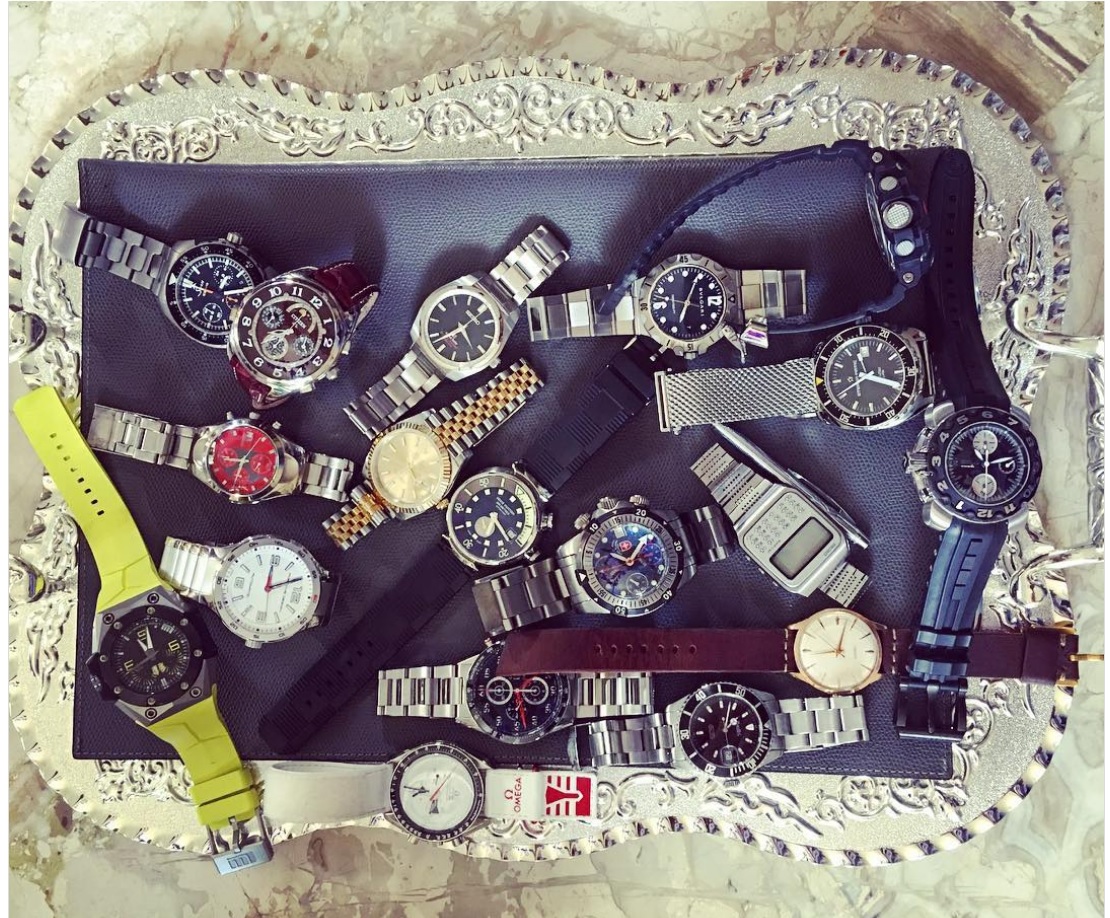
The size of your budget, the size of your case — the size of your strap, and the size of your entire watch collection. It’s all very personal. Is there a proper watch collection size? Is there an ideal number of watches to own? Should you, as a collector, be mindful of maintaining the right collection size as another variable to consider when maturing as an enthusiast? Internet wristwatch collector personalities will offer a range of opinions on this topic. Some profess the wisdom of watch collections of a limited size. Others never talk about the size of their stock at all. How should you consider the question, “How big should my watch collection be?”
To answer these questions in this installment of Point/Counterpoint, we have aBlogtoWatch founder Ariel Adams and Nick Lehner, a watch writer and collector — this is his first contribution to aBlogtoWatch. Nick will begin with his first point on the matter of how big your watch size collection might want to be.
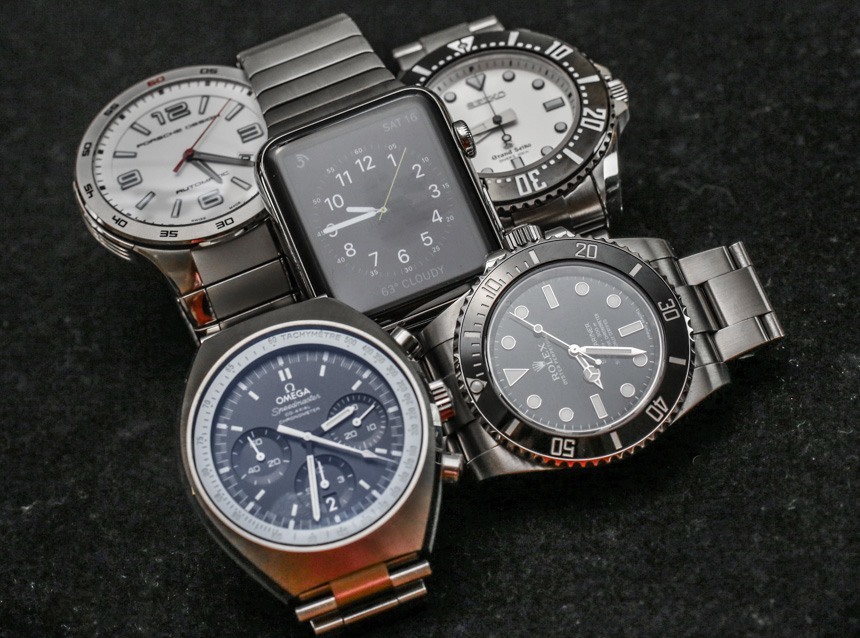
Nick Lehner: The perfect number of watches is different for each person, but I believe that everyone has a specific collection size that will give them the most enjoyment of the hobby. When a lot of people get the collecting bug, they end up focusing on quantity over quality and end up with a bunch of mediocre watches. I think that for many collectors (myself included) 5-7 carefully selected watches is an ideal range, especially for those of us on a strict budget. That collection is big enough to contain a watch for any situation (from mowing the lawn to a formal event) without having so many options that you experience paralysis when you open your watch box.
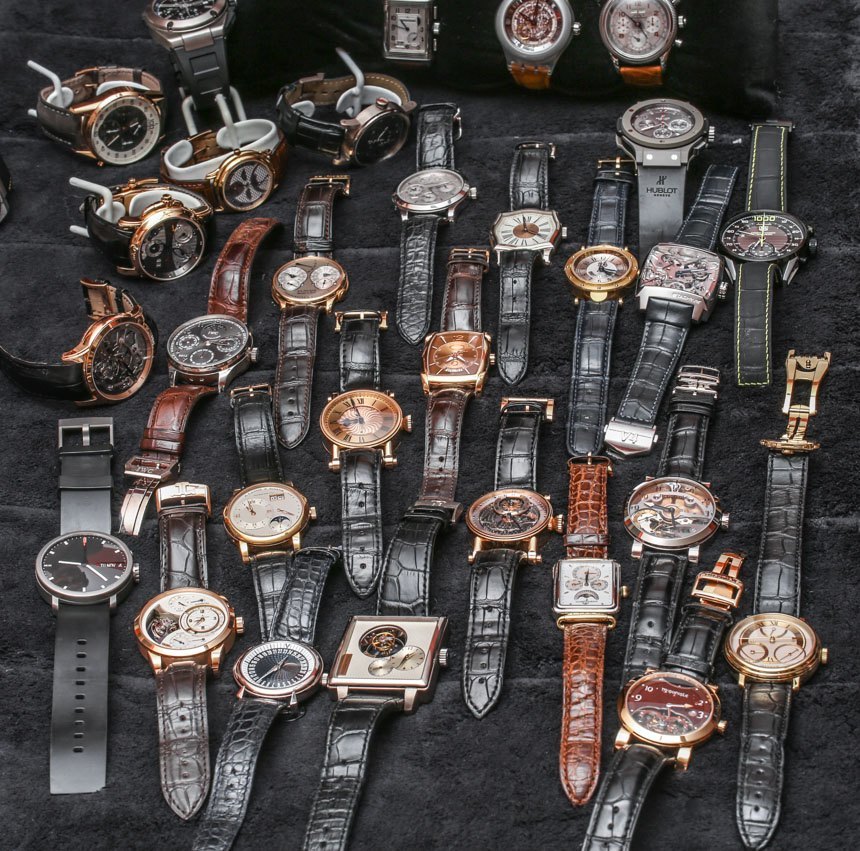
Ariel Adams: You may be right about some people eventually having “ideal collection sizes,” Nick, but I believe that you are jumping the gun. In my opinion, even thinking about an ideal watch collection size from the start is a limiting mentality — especially to new watch collectors. In fact, I know some watch collectors with prodigiously sized timepiece assortments that would be absolutely floored if they needed to narrow down their collection to “5-7 carefully selected watches.” Some people go through more watches than that in a week.
Collecting watches on a budget is doable, but the result should be to purchase more of the watches you can afford as opposed to waiting and saving up for one purchase each several years (or longer). That approach seems more focused on assorting a collection of timepieces that other people have told you should be included in your selection. That is opposed to the much more organic and natural approach of allowing collectors to freely acquire what timepieces they might fancy at any given time. The rule about not buying watches you can’t afford remains true and important. Other than that, I urge new collectors especially to heed my advice about going into the practice of collecting watches with absolutely no numbers in mind of how large their collections should be.
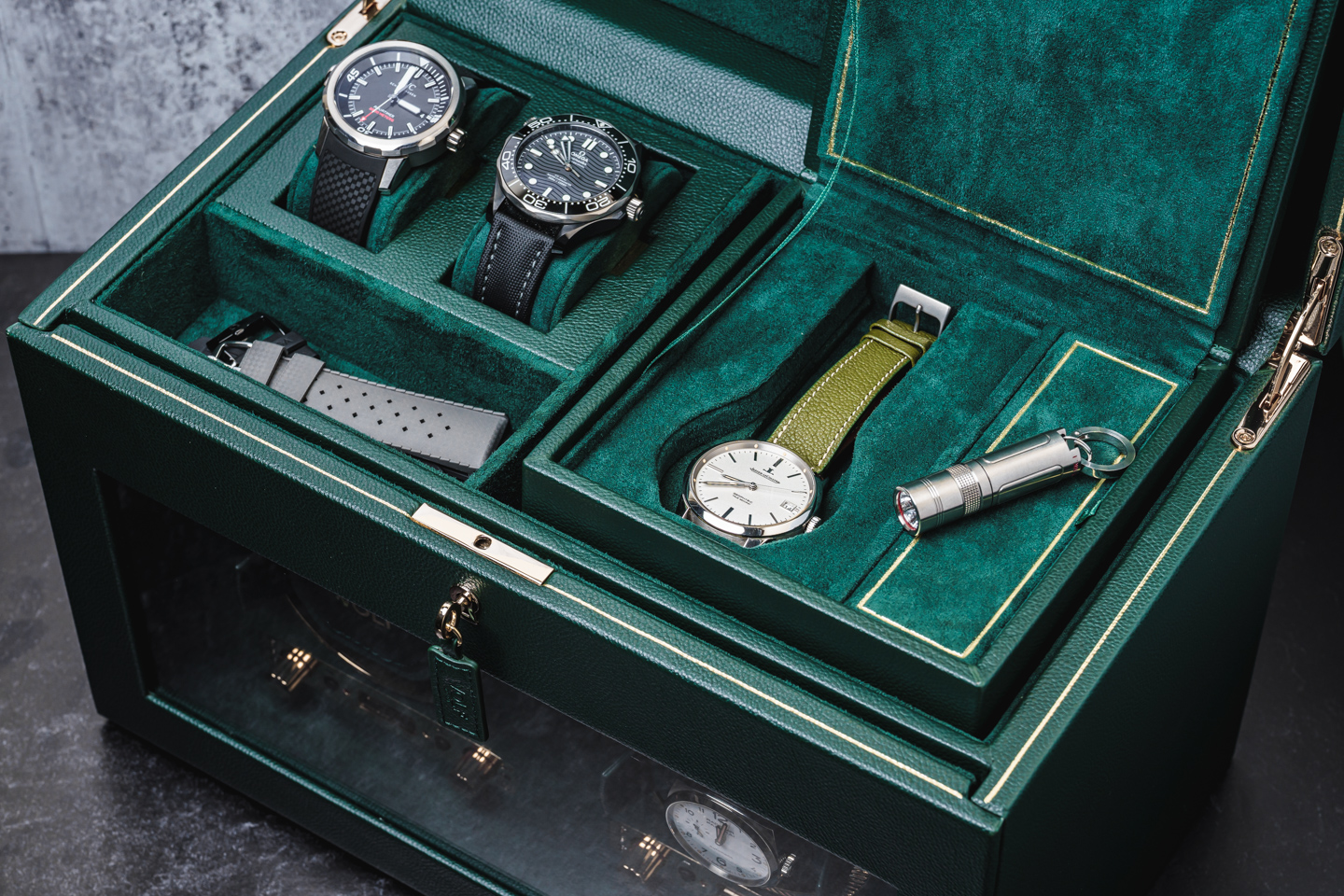
Nick Lehner: While I agree that it can be limiting, I think that some collectors become burnt out when they amass too many middle-of-the-road watches. The next purchase loses its luster quickly, and it becomes a mental obligation to give all of those watches wrist time. If a collector can make him or herself comfortable with selling some watches, I believe that some fresh metal will reignite their enthusiasm.
This binge and purge strategy has allowed me to slowly build up a collection over time that I thoroughly enjoy, and to make purchases that I get truly excited about. I will periodically sell off a number of less expensive watches that I’ve acquired and use the funds to purchase one nicer watch. If the number of watches gets too high, some watches start gathering dust and it’s time to do some curation.
Through this method, I’ve still been able to experience a lot of different watches, and discover my own taste. Of course, some people have an amazing collection of heavy-hitters, and I would never suggest that they narrow down to five watches (as if those collectors would listen to my advice, anyway). I think, though, that the rest of us 99% will experience more enjoyment from a few carefully selected pieces than from many average watches.
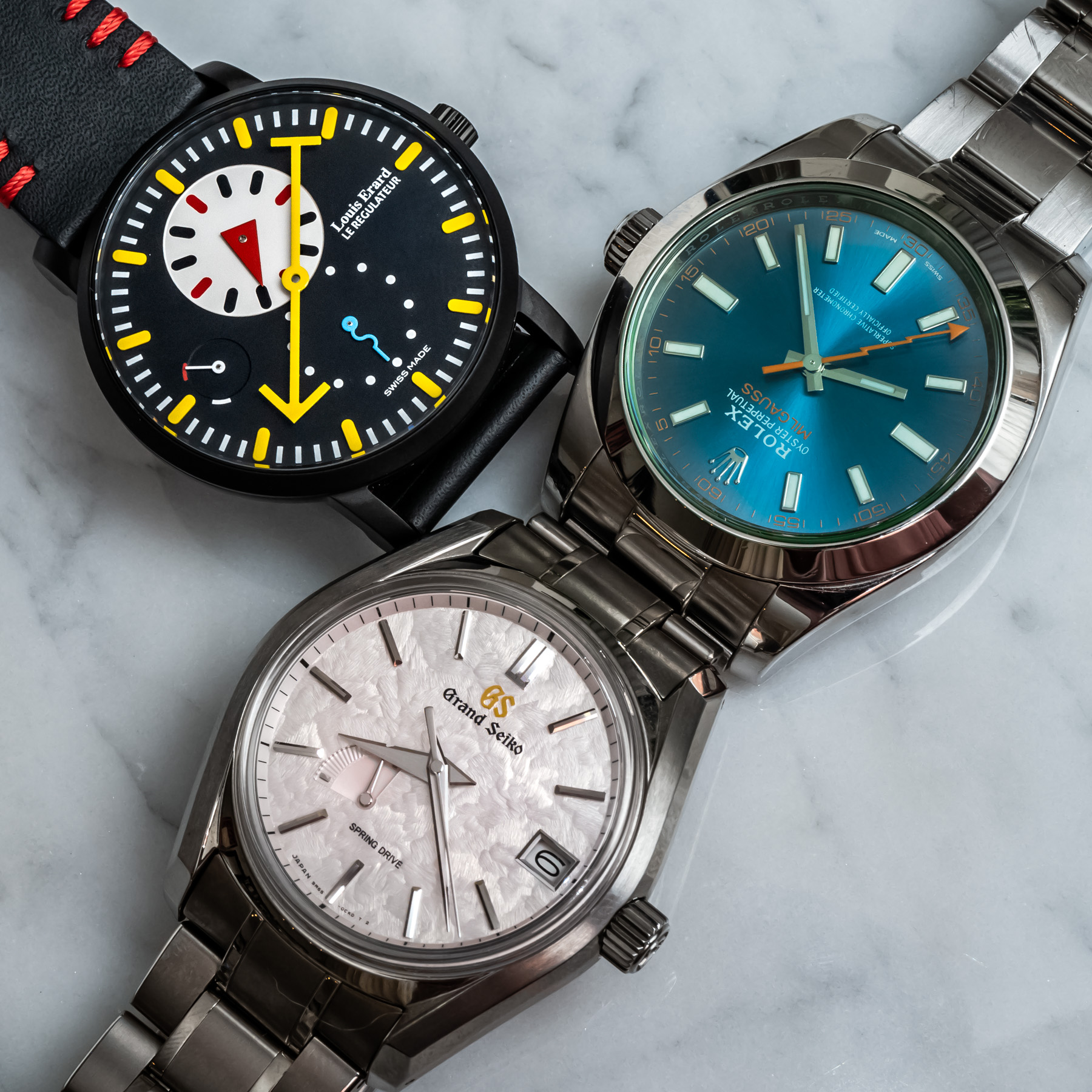
Ariel Adams: Let’s be honest: The practice of buying and selling watches online is a hobby unto itself, distinct from wearing and appreciating watches. Some people are into both hobbies, some just one. For those people who are more interested in having cool watches and enjoying them, I think the stress of selling watches after you have purchased them is not something to gloss over. Selling watches can be fun but also intimidating and hard to do, despite the multiple online marketplaces out there. I think it is easier said than done for watch lovers to also dabble in the art of selling.
More so, the number one thing I have heard from collectors over the years is regret after selling a watch. I understand that budgets are limited and, at times, people need money — but I don’t think it makes for healthy collecting behavior to plan on selling a watch before you actually get it. Watch collecting is like legal polygamy. You can get “married” to as many watches as you like. Sure you can divorce as many times as possible, but like the foundation of all good relationships, shouldn’t you enter the situation hoping for something long-term? How dedicated to the watch are you really going to be if you know that your tryst will be for a limited time only? The parallel between human relationships and watch collecting might seem silly to some, but both involve a strong element of love and ego.
Also, and this might sound weird to some, but what is the harm in owning a watch you don’t wear? I have plenty of watches whose design or story I like but that I don’t wear, either because they don’t fit my style or I simply don’t find them comfortable. I think the true sign of a collector, as opposed to a mere enthusiast, is when you are at total ease when owning a wristwatch you never or rarely intend on wearing.
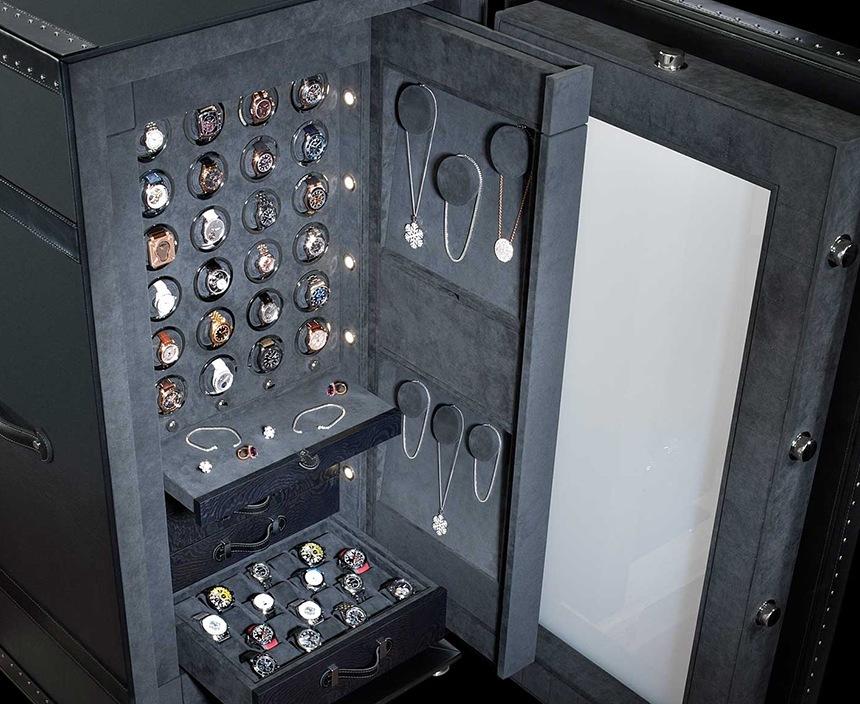
Nick Lehner: While I agree it’s not for everyone, I feel that if collectors can get over the hump of selling, they’ll get more out of the hobby. It gives collectors the ability to experience more different watches in a shorter amount of time, and understand even better what they enjoy most (and don’t enjoy). I would never advocate selling something that has strong sentimental value, such as a wedding watch, or a gift from someone close. You should also consider before selling if this watch is rare and will be difficult to find if you do end up wanting one back. I’ve avoided these two mistakes, and have never regretted any of the watches I’ve sold.
I do think that you’re right about not buying a watch that you know from the outset you plan to re-sell. You’re never going to bond with it because it won’t feel like it’s yours. Sometimes, however, watches are not what we expect them to be, plus tastes change over time. Since I’m always seeking to improve and optimize my collection, occasionally I have to make the tough decision to sell a few “seven-point” watches and get one perfect 10.
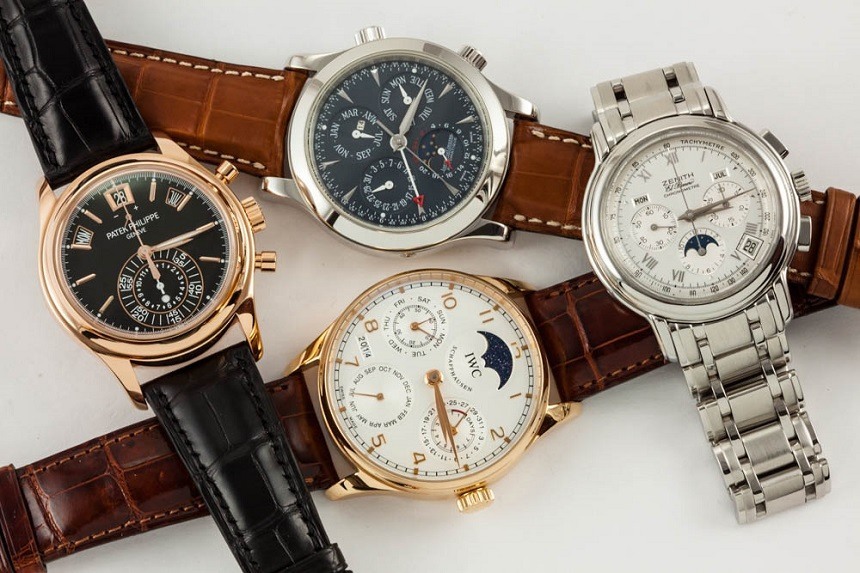
Maybe this strategy makes me an enthusiast and not a collector, but I believe that watches are intended to be worn (as cars are intended to be driven, and not stored under a cover). For me, at least, if something becomes more of a collection piece than something I enjoy wearing, I think it’s time to give someone else the chance to experience it.
Ariel Adams: Let me say something that could ease your mind about too many people out there with ballooning collections of watches. Maybe you imagine rooms with pieces coming out of cabinets and drawers. Data I learned via direct surveys suggests that most collectors end up thinning out their collection organically over time. If you do the math, given how long most of the aBlogtoWatch audience members have been into watches as a hobby, and the average number of watches they purchase a year, then many people ought to have collections in the hundreds of watches. That isn’t the case. What we find is that watch lovers who have been into timepieces for sometimes as long as 30 years, on average have collections of around 15-30 watches. Indeed, there are people with vastly larger collections, but the average collector seems to naturally get rid of watches as time goes on, settling into a comfort done of around two dozen pieces.
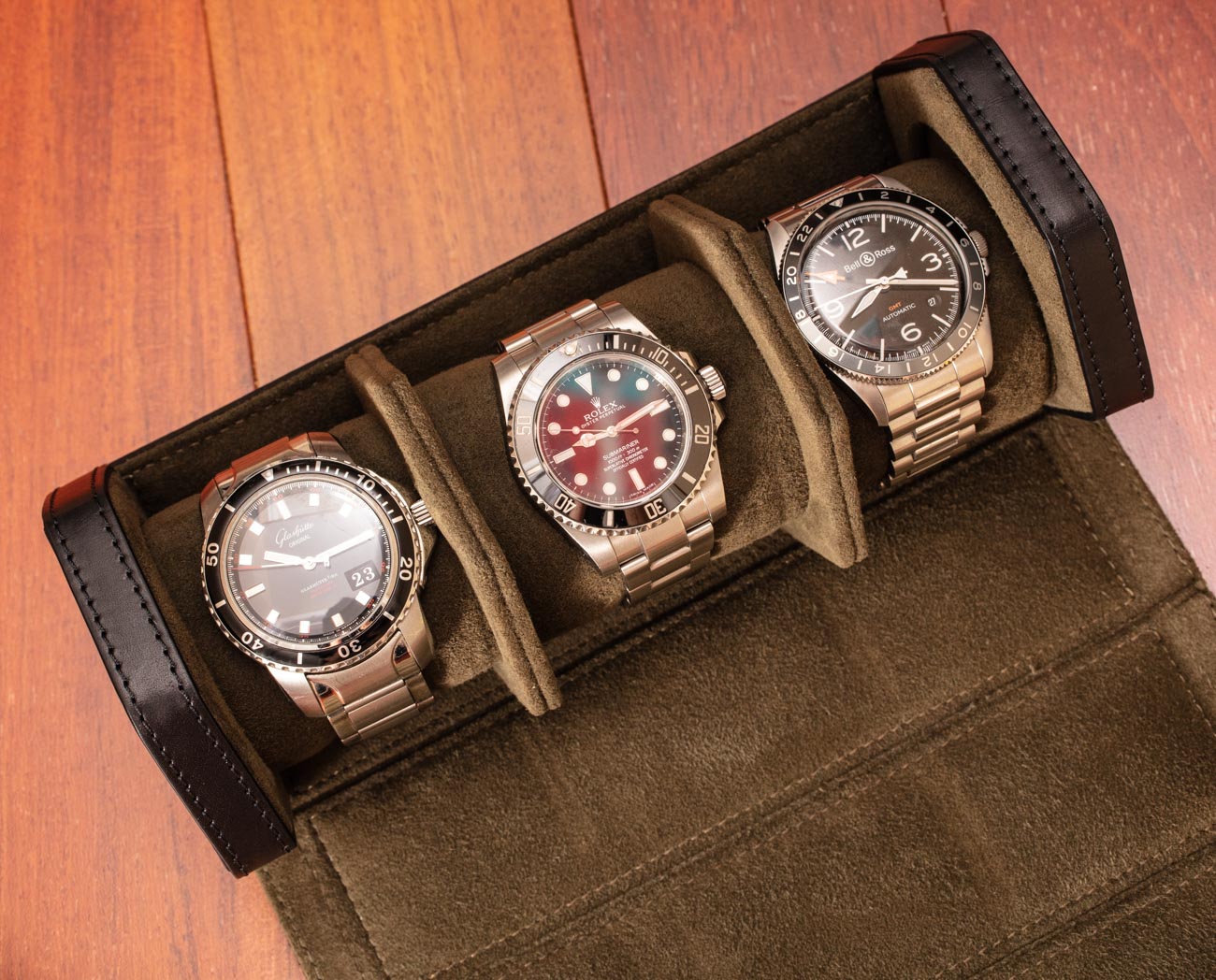
I don’t really know why that is, or what happens at around 30 watches that make people feel like they need to downsize. You could easily store 100 watches in the available space most people have. My guess is that over time, people just fall out of love with certain watches, and actually want someone else to enjoy them (as much as they want to recoup some buying dollars). I am also guessing that when collectors get rid of watches, they would actually prefer to trade them versus outright sell them for cash. That’s because they tend to get rid of watches to acquire new ones. It is actually very popular behavior to trade two or more “lesser” watches in order to get the equivalent of one “nicer” watch. This probably helps explain how collections naturally get thinner over time — because collectors are exchanging two or three watches and getting only one back in return.
I suppose my problem with the idea of too much watch flipping is the fact that collectors lose more value than they gain (for the most part) when they need to sell a watch in order to upgrade. Economic entropy means that it becomes too difficult to use your existing watches to leverage acquisitions of new pieces. Social and friendly trading seems to be a better way to go about doing it without as much grief.
It would appear that collectors settle on watch collection sizes outside of ever planning it. You might correctly observe that a lot of people are happy in the 7-10 watches range. But for me, there is no point in deciding that in advance. Let people buy and play as they will, not having to stress out about whether or not they have too many or too few watches. This is a hobby for me and I don’t like arbitrary rules affecting my journey as a collector. My buying behavior might be just like that of 80% of other consumers out there, but I don’t really want to know that, nor should it affect me. No one really wants to know (or believe) the outcome of their story before they have lived it. Collecting watches should be an unhampered stroll into the unknown.
